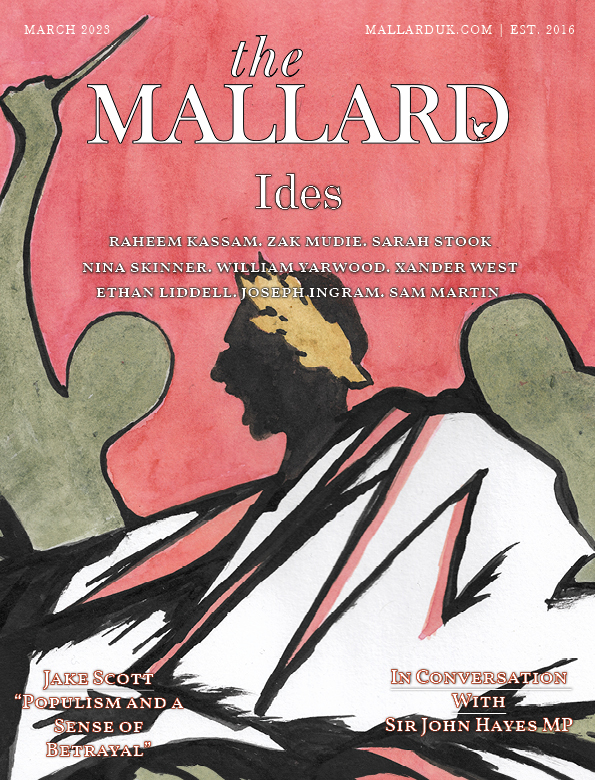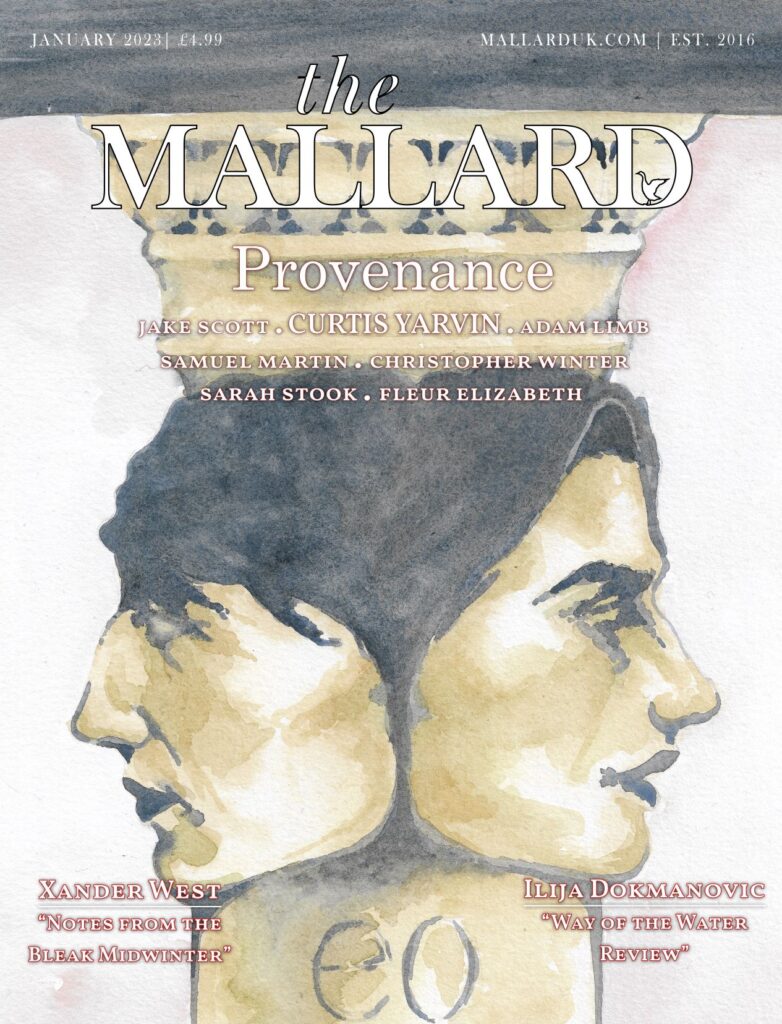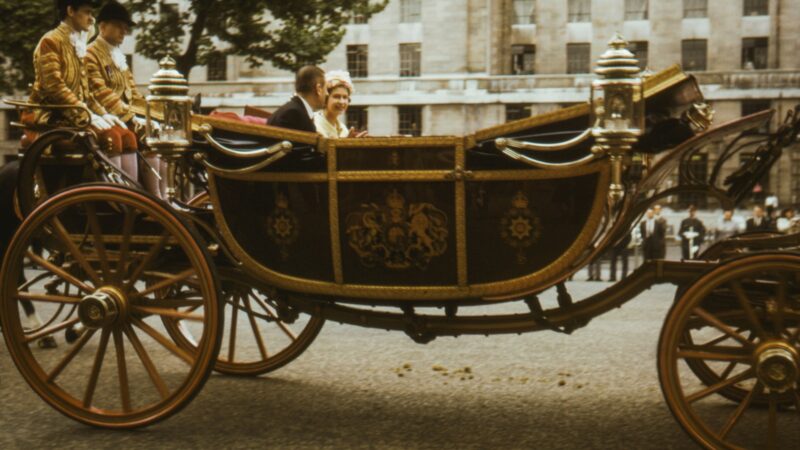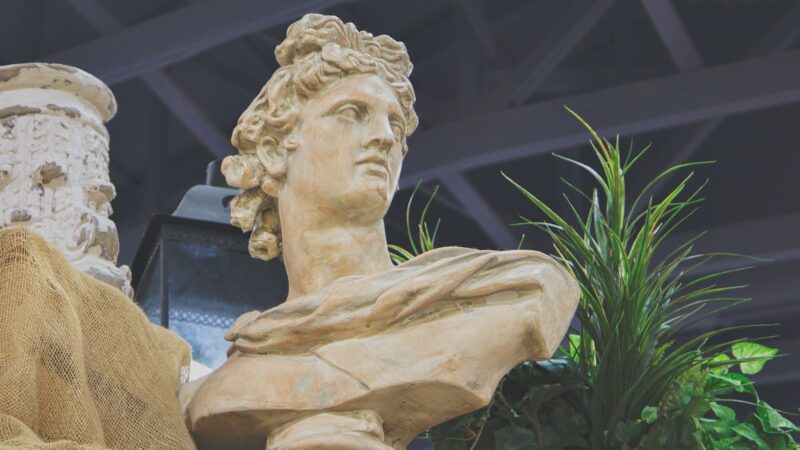POC are just like you and me. Sure, there are technical, mostly visual, differences between us. However, considered in the grand scheme of things, such differences are quite trivial.
Far from a weakness, this diversity is a strength; we all play a role in moving our democracy forward, and ensuring the public realm remains a lively and vibrant place. Of course, by POC, I am referring to People of Commentary.
POC are everywhere. Turn on the television and you’ll be greeted by POC. Scroll through any social media feed, and without much effort, you’ll find posts made by POC. Walk through the middle of London, and soon enough, you’ll sight chattering congregations of POC.
Given the apparent omnipresence of POC, one eventually begins to ask: where did they come from? Were there this many POC in Britain 50 years ago? Yes, I know I’m pushing my luck.
In all serious consideration, the voice of commentators, self-described or not, for better or for worse, constitutes a large chunk of public, especially political, discussion in Britain.
Conversely, and it would seem simultaneously, we have witnessed a rapid decline of public intellectualism over consecutive decades. Indeed, the noted absence of intellectuals from public life is underscored when most people struggle to define what an intellectual actually is.
Many are inclined to believe that the British are, by their very essence, an anti-intellectual people. Distrustful of abstraction, they very much prefer a hodgepodge philosophy of empirical observation and sainted “Common Sense” – both of which, especially the latter, intellectuals supposedly and infamously disregard.
An immediate glance at ongoing matters would support this position. Despite the fundamental disagreements constituting the “Gender Wars”, it is clear that both sides consider Britain, thankfully or regrettably, uniquely resistant to transgenderism. In my view, this can be traced to our Anglo-Saxon forbearers, who gradually removed the notion of gendered words in our language besides the ones which speak to the empirical (that is, biological-anatomical) distinction between men and women.
All this said, empiricism isn’t exactly synonymous with “anti-intellectualism”, just as the names Francis Bacon, Thomas Hobbes, David Hume, George Berkeley, or Edmund Burke rarely come to mind when discussing “anti-intellectuals”. We can safely assume that intellectuals primarily deal in ideas, but we can’t safely assume said ideas are purely rationalistic and abstract.
Herein lies the distinction: there’s a difference between contemporary “anti-intellectualism”, which has contributed to the explosive ascendancy of POCs, and the “anti-intellectualism” which is distinctly “intellectual” in nature – pertaining to the limits, rather than uselessness, of intellectualism-as-abstraction. As such, we should consider post-war anti-intellectualism as a degeneration of a healthier and more measured position.
Without placing too much weight on the origins of Britain’s post-war anti-intellectualism, I would argue that such a precise attitude be attributed to the popularity of the ideas of George Orwell, as conveyed by cultural osmosis, rather than extensive reading; specifically, his preoccupation with ‘Ordinary People’ and the ways in which they are different to the class of ‘Intellectuals’ whom Orwell sought to disassociate himself.

This is an excerpt from “Ides”. To continue reading, visit The Mallard’s Shopify.
You Might also like
-
Against Republicanism | Aidan Scott
Many Conservatives have noticed a worrying trend in polling recently. YouGov suggests that support for the Monarchy is falling, especially among younger people. For the first time in British history 19-24 year olds apparently support having an elected head of state instead of a hereditary one. When combined with His Highness the Prince of Wales’s constantly mediocre approval ratings, a grim future seems to loom ahead of us. Many of my colleagues have dismissed these signs as unimportant in the grand scheme of things. Perhaps they are right, but I cannot help but be worried, and my worry has driven me to write this article in defence of Monarchy against the evil that haunts modern Britain: Republicanism.
In Britain, and I do not intend to comment on any other nation in this article, we have been ruled by Kings, Queens, and occasionally Emperors and Empresses, since written records began. Because of this it seems fair to regard Monarchy, in one form or another, as the native political system of the British peoples. Whilst our Monarchs have often been foriegn, the Throne has always been a native institution, never forced on us. The same cannot be said of Parliament, a Norman-French perversion of the Anglo-Saxon Witan. The only period where every part of Britain was not ruled by a Monarch was during Oliver Cromwell’s brief stint as Lord Protector during the interregnum, where he established himself as a hereditary Absolutist ruler, a King in all but name and legitimacy. As we all know, this unprecedented period was so terrible that after Cromwell’s death Charles Stuart, son of the previous King who Parliament murdered, was asked to come home from France and be Crowned King Charles II. The only time in history where Monarchy was abolished lasted a few short decades, and ended with Monarchy’s restoration.
I believe one of the most important reasons to defend Monarchy in Britain is because it is one of the few fully domestic institutions left. Indeed, it is the domestic institution, it acts as an immaterial liferope stretching back thousands of years, on one end it is held by our ancestors, and on the other end it is held by us today. Whilst in the past we may have had more ropes strung between us, none were as important as the Throne, and all others have been cut in the name of reform and progress. If we choose to let go we lose our last real connection to our forefathers, forcing us to drift aimlessly into the future like a raft untethered from a larger ship. Some would argue, of course, that just because a system is native does not necessarily lead to its being good and worth protecting. I admit that this is true in some cases; to the Aztecs human sacrifice was native, and so too was widow-burning native to the Indians. However, a system being native almost always acts as a reason in favour of its preservation, as it is these unique elements that make each nation recognisable against one another, or connects lands far apart which share common heritage. The Throne simultaneously differentiates us from our neighbours, whilst also ties us together with our friends in Australia, Canada, New Zealand, and many other nations who share the Queen as their Head of State. Until Monarchy is proven completely rotten it must stay, for our ancestors sake as much as ours.
Many have already written on the economic benefits the Monarchy brings for Britain. I find these arguments boring and unconvincing. For example, they often imply that we should support abolition if the Monarchy cost more than it brought in, an idea I find abhorrent. Instead an argument I find far more convincing, and one I hope Republicans will struggle to argue against, is the fact that the Monarchy acts as a foundation for every law in the country. Britain is well known for our unwritten “constitution”. Instead of writing a single document to clarify everything from rights to how Parliament is to sit we simply use the laws that our fathers, grandfathers, great grandfathers and so on wrote to settle these issues. If we find these laws no longer suit us, we pass new ones that supersede and replace them. I love this system. It grants us both flexibility and structure. Even if at times it can be confusing, it is uniquely ours. However, unlike in America where their constitution essentially derives its authority from itself, our beautiful tangled mess of a constitution is built on the firm foundation of the Monarchy. It is the only institution that was not founded by some law, rather each law gains its force and legitimacy from the Monarch themself. When one keeps this in mind, it seems impossible for Abolition to occur without also requiring huge constitutional reform. Trying to get rid of the Monarchy without upsetting our delicate Constitutional arrangement, like trying to remove a house’s foundations without causing the whole thing to collapse. It would not be enough to pass an amendment removing any mention of the Monarch from every law ever passed, the powers of the Monarch would have to be given to someone, and who does the general public trust with such immense power; Boris Johnson? Keir Starmer? The House of Commons? None of these people have proven themselves to be as prudent or farsighted as Her Majesty the Queen or any of her predecessors and none are worthy of the powers of State. Do you trust anyone to rewrite the entire British Constitution and not make a mess of it, or worse edit it in a way that benefits their party and their interests? You clearly shouldn’t, and the safest way to ensure they don’t is to fight to protect the Monarchy at all costs.
There are many points that I have failed to make in this article. Whether because I found them overdone or unconvincing, I have not written any argument that cannot in part explain my own personal devotion to our greatest institution, or why I will fight for its continuation until I draw my last breath. Such arguments can be found elsewhere, and perhaps I will write a more general ‘Monarchist Manifesto’ at a later date. I only hope to have contributed a few somewhat unique points in this extremely important debate.
God save the Queen.
Post Views: 1,092 -
Against the Rationalists
I had forgotten why I wrote ‘Against the Traditionalists’, and what it meant, so the following is an attempted self-interpretation; for that purpose, they are intended to be read together.
The Preface of Inquiry:
God hath broke a motley spear upon the lines of Rome,
When brothers Hermes masked afront Apollo’s golden throne.
The Aesthetics of Inquiry:
Metaphors we hold in mind, those scenes with their images and progressions, are of the fundamental sense that orders our perceptions and beliefs, and from which everything we create is sourced; for metaphors are dynamic and intuitive relations; and they emerge from the logic of the imagination—let us have faith that our logic is not cursed and disordered, in its severance from the Logos. The phenomenologists would be amply quoted here if they weren’t so mystical and confused—alas, one can never know which of the philosophers to settle with as they’re all so sensible, and they can never agree amongst themselves, forming warring schools that err to dogmatism since initiation—so it is to no surprise that ideologies are perused and possessed as garbs regalia, and for every man, their emperor’s new clothes.
If brevity is the soul of wit, then genius is the abbreviation of methodologies. Find the right method of inquiry, for the right moment: avoiding circumstantial particulars, preferring particular universals; even epistemic anarchist, Feyerabend, would prefer limited, periodical design to persistent, oceanic noise. One zetetic tool of threefold design, for your consideration, might be constituted thusly: axiomatic logistics—Parmenides’ Ladder, founded, stacked and climbed, with repeated steps that hold all the way; forensic tactics—Poe’s Purloined Letter, ontologically abstracted over to compare more general criteria; panoramic strategy—puzzling walnuts submerged and dissolved in Grothendieck’s Rising Sea, objects awash with the accumulated molecules of a general abstract theory. Yet, do not only stick your eye to tools, lest you become all technique, for art, in Borges, is but algebra, without its fire; and let not poor constructs be ready at hand, for the coming forth a temple-work, in Heidegger, sets up the world, while material perishes to equipment, and equipment to its singular use.
Letters of Fire and Sword:
A gallery of all sorts of shapes, and symbolic movements, exist naturally in cognition and language, and such a gallery has it’s typical forms—the line and circle, for example, are included in every shape-enthusiast’s favourites—though Frye identifies more complex images on offer, such as mountains, gardens, furnaces, and caves—and, most unforgettably, the crucifix of Jesus Christ. I’d write of the unique flavours of languages, such as their tendency to particular genres, to Sapir and Whorf’s pleasure, yet by method I must complete my first definition—now from shapes, their movement. The cinematographic plot of pleasing images adds another dimension to their enjoyment—moving metaphors, narrative poetry, being the most poetic; their popular display is sadly limited to mainly the thesislike development of a single heroic journey, less so the ambitious spiral scendancy, or, in the tendency of yours truly and Matt Groening, disjointed and ethereally timestuck episodes in a plain, imaginary void. The most beautiful scenes, often excluded, are a birth and rejoice, the catharsis of recognition, and the befalling ultimate tragedy and its revelation to universal comedy—these stories hold an aesthetic appeal for all audiences, and that’s a golden ticket for us storytellers.
If memory is the treasurehouse of the mind, then good literature is food for the soul. In the name of orthomolecular medicine, with the hopes that exercise and sleep are already accounted for, let your pantry be amply stocked and restocked with the usual bread and milk, with confectionary that’s disappeared afore next day, and with canned foods that seem forever to have existed—as for raw honey, a rarer purchase, when stored right it lasts a lifetime, and eversweet. I’m no stranger to the warnings against polyunsaturated fats by fringe health gurus, but I think I’ll take my recommendations from the more erudite masters of such matters; and I’m no stranger to new and unusual flavours, provided they’re not eaten to excess. The canonical food pyramid of Western medicine, in its anatomical display of appropriate portions, developed from extensive study and historical data, places the hearty reliables en masse at its foundations, and the unhealthiest consumables at the tiniest peak, so that we might be fully nourished and completed, while spared of the damage wreaked on our bodily constitution by sly treats of excess fats, sugars, and salt. Be rid of these nasty invaders, I say, that’d inflame with all sorts of disease; be full of good food, I say, that’d sharpen the body’s workers to good form. Mark the appropriateness of time and place when eating to the same measure; a diet is incomplete without fasting—let your gut some space to rest and think. And note the insufficiency of paper and ink as foodstuffs, and the immorality of treating friends like fast food—the sensibility of a metaphor must be conducive to The Good as well as The Beautiful, if it is to be akin to The True. Aside, it is the most miserable tragedy that, for all the meaty mindpower of medieval transcendental philosophy, they did not explore The Funny—for the Gospels end in good news, as does good comedy.
Bottom’s Dream:
Shakespeare—The Bard of whom, I confess, all I write is imitation of, for the simple fact I write in English—deserving, him not I, of all the haughtiest epithets and sobriquets that’d fall short of godhood, writes so beautifully of dreams in Midsummer’s Night’s, and yet even he could not do them justice when speaking through his Bottom—ha ha ha, delightful. “I have had a dream, past the wit of man to say what dream it was: man is but an ass, if he go about to expound this dream. Methought I was—there is no man who can tell what. Methought I was, —and methought I had, —but man is but a patched fool, if he will offer to say what methought I had. The eye of man hath not heard, the ear of man hath not seen, man’s hand is not able to taste, his tongue to conceive, nor his heart to report, what my dream was. I will get Peter Quince to write a ballad of this dream: it shall be called Bottom’s Dream, because it hath no bottom…”, Nick Bottom, from A Midsummer Night’s Dream. At the end of Act IV, Scene 1.
Intermission, The Royal Zoo:
A Prince and three Lords did walk in the garden, and they sauntered about for the day.
The soon-to-be-King became awfully bored and inquired what game they could play.
“Perhaps, Sire, it’d be best to prepare”, they said, “for life’s duties that approach”.
“It is proper to train for a life’s work”, said they, “lest that debts’ hunger encroach”.
“Consider the rats”, said the Money Lord, “how they scavenge and thrift for tomorrow”.
“For their wild life is grim, and tomorrow’s tomorrow, so take what you can, and borrow”.
“Consider the lions”, said the Warrior Lord, “how they prowl and sneak for a bite”.
“For the proud life is hearty, strong conquers weak, lamb shanks easiest sliced at night”.
“Wise, yet consider the spiders”, said the Scribe Lord, “for they outwit both lion and rat”.
“To scavenge is dirty and timely, and hunting so tiring, better cunning employed to entrap”.
The Prince, unsatisfied by his Lords, summoned a Squire to ask of him his opinion:
“Squire, what do you do, not yet enslaved by your profession, that maketh life fulfilling?”.
“I play with whom I play, and with whom I play are my neighbours, my friends”, said Squire.
For that, said The Prince, “I will live not like a beast”, “I will live like a man!”,
And three Lords became three furnaced in fire.
“Then I commended mirth, because a man hath no better thing under the sun, than to eat, and to drink, and to be merry: for that shall abide with him of his labour the days of his life, which God giveth him under the sun.”, Ecclesiastes 8:15, KJV. Amen.
The headstar by which we navigate, fellow Christians, is neither Athens nor Rome—it is Christ. “Be sure [Be careful; Watch; See] that no one ·leads you away [takes you captive; captivates you] with ·false [deceptive] and ·empty [worthless] teaching that is ·only human [according to human traditions], which comes from the ·ruling spirits [elemental spiritual forces (demons); or elementary teachings] of this world, and not from Christ.”, Colossians 2:8, EXB. Amen.
A Note on Opinion:
It is common sense, in our current times, that the most opinionated of us rule popular culture. Without a doubt, the casting, writing, directing, etc, of a major cinematic production project is decided in final cut by ‘the money’—so I speak not of the centrally-planned, market-compromised popular-media environment—but it is by the algorithm of the polemic dogmatist that metacultural opinions, of normative selection and ranking and structuring, are selected. One must be at the very least genius, or prideful, or insane, to have the character of spontaneously spouting opinions. It is an elusive, but firmly remembered anecdote that ordinary, healthy people are not politics-mad—ideologically lukewarm, at the very least. Consider the archetypical niche internet micro-celebrity: such posters are indifferent machines, accounts that express as autonomous idols, posting consistently the same branded factory gruel, and defended by their para-socialised followers over any faux pas, for providing the dry ground of profilicity when sailing the information sea. Idols’ dry land at sea, I say, are still but desert islands—houses built on sand. Now consider the archetypical subreddit: ignoring the top-ranking post of all time either satirising or politicising the subreddit, and the internal memes about happenings within the subreddit; even without the influence of marketing bots, the group produces opinions and norms over commercial products and expensive hobbies, and there is much shaming to new members who have not yet imitated and adopted group customs; essentially, they’re product-review-based fashion communities. Hence, the question follows: if knowledge is socially produced, then how can we distinguish between fashion and beauty—that is, in effect, the same as asking how, in trusting our gut, can we distinguish lust and love? How can we recognise a stranger? Concerning absolute knowledge, including matters of virtue and identity, truth is not pursued through passion’s inquiry, but divinely revealed. “Jesus said unto them, Verily, verily, I say unto you, Before Abraham was, I am.”, John 8:58, KJV. Amen.
A Note on Insanity:
It is common for romantic idealists to be as dogmatic as the harsh materialists they so criticise. All is matter! All is mind! One ought to read Kant methinks; recall Blake’s call to particularity: there needs be exceptions, clarifications, addendums, subclauses, minor provisions, explanatory notes, analytical commentary, critique, and reviews—orbiting companion to bold aphorism; Saturn’s ordered rings, to monocle Jupiter’s vortex eye, met in Neptune’s subtle glide. Otherwise, the frame is no other than that which is criticised: arch-dogmatism. If we’re to play, then let us play nicely; it is not for no reason that Plato so criticised the poets, for the plain assertions of verse do not explain themselves, and so are contrarywise to the pursuit of wisdom in a simple and subjectivist pride—selfishly asserting its rules as self-evident. Yet, they might be wedded, for truly there is no poetic profession without argumentative critics—no dialectic without dialogue. And so, if I must think well, and to accept those necessities, then questions of agency be most exhaustive nuts to crack. If all is matter, then all is circumstantial—If all is mind, then all is your fault; if all is reason, we’re bound by Urizen’s bronze—if all is passion, we’re windswept to fancy. Unanswered still, is the question of insanity. And even without insanity, what is right and what is wrong so eludes our wordy description. “So whoever knows the right thing to do and fails to do it, for him it is sin.”, James 4:17, KJV. Amen.
Endless curiosities might unravel onwards, so shortly I shall suggest a linguistic idealist metacritique of mine own, that: to make philosophy idealistic, or to naturalise the same, are but one common movement, merging disparate literatures representing minds, of the approach to total coherence of the human imagination; such that might mirror the modal actualism of Hegel, a novelist who was in following, and ahead of, the boundless footsteps of short story writer, Leibniz. To answer it most simply: for four Gospels, we have fourfold vision, so if one vision is insufficient, then two perspectives are too—all-binary contradiction is the workings of Hell, but paradox and aporia, is, as exposited by Nicholas Rescher and Brayton Polka, the truth of reality. This way we might properly weigh both agency and insanity, by taking the higher ground of knowledge and learning. Recall Jesus’ perfect meeting of the adulterer—when he saw the subject and not the sin.
A Note on Disability:
There is potential for profound beauty in the inexpressible imagination, such that would make language but ugly nuts and bolts, if it didn’t also follow that we cannot absolutely explicate language either. Then, it seems even if our words do not create the world, but are representations, we can still know and appreciate facets of reality without their full expression—our words construct models, or carve at the joints of the world, but the good and beautiful expression is true proof of God; to recognise truth is intuitive, perhaps being that mental faculty which is measure sensibility. Hence, let us first pray that we are all forgiven for our sins, ignorant and willing, and second, that the mentally disabled, and lost lambs without dreams, can know Him too. Amen.
Post Views: 1,029 -
Avatar: The Way of Water Review (Magazine Excerpt)
It has been almost 12 years since the release of one of the highest grossing films of all time – that being 2009’s Avatar, James Cameron’s sci-fi epic.
There has been a running meme for the last couple years that despite the first Avatar film’s wild success in the box office, it isn’t a memorable film. The characters aren’t memorable, the storyline is a copy and paste of 1990’s Dances With Wolves, and that its success hinged on the technological breakthroughs in CGI and 3D film that were a staple feature of the film.
In retrospect, the running joke isn’t far from the truth. Avatar is a film that hasn’t held up for casual viewers on its own merits, but rather through nostalgia of a time that has long passed – a time before the insanity of the last 10 years in the social and political scene, where most people were more concerned about the film’s core messages; that being a deeply environmentalist film, a critique on colonialism, and the insatiable appetite of human discovery wreaking havoc on innocent and more noble creatures.
While there are aspects of the original film I enjoy, such as the detailed world-building that Cameron is known for, and the cutting edge visual effects, it still failed to resonate with me the way it has with many other viewers.
The preaching was exhausting when I watched it the first time in 2009, and it is still exhausting today. I get it. Humans are bad, save the trees, the military industrial complex is so evil, etc, etc.While the second installment Avatar: The Way of Water certainly delves a little deeper into the lore and ups the stakes for the protagonists, it still carries the same bare-bones environmentalist sermon that has become all too exhausting in this day and age, especially when we have Extinction Rebellion and Just Stop Oil cronies ruining fine art and causing general inconvenience to all those around them in our current reality.

This is an excerpt from “Provenance”. To continue reading, visit The Mallard’s Shopify.
Post Views: 1,353



